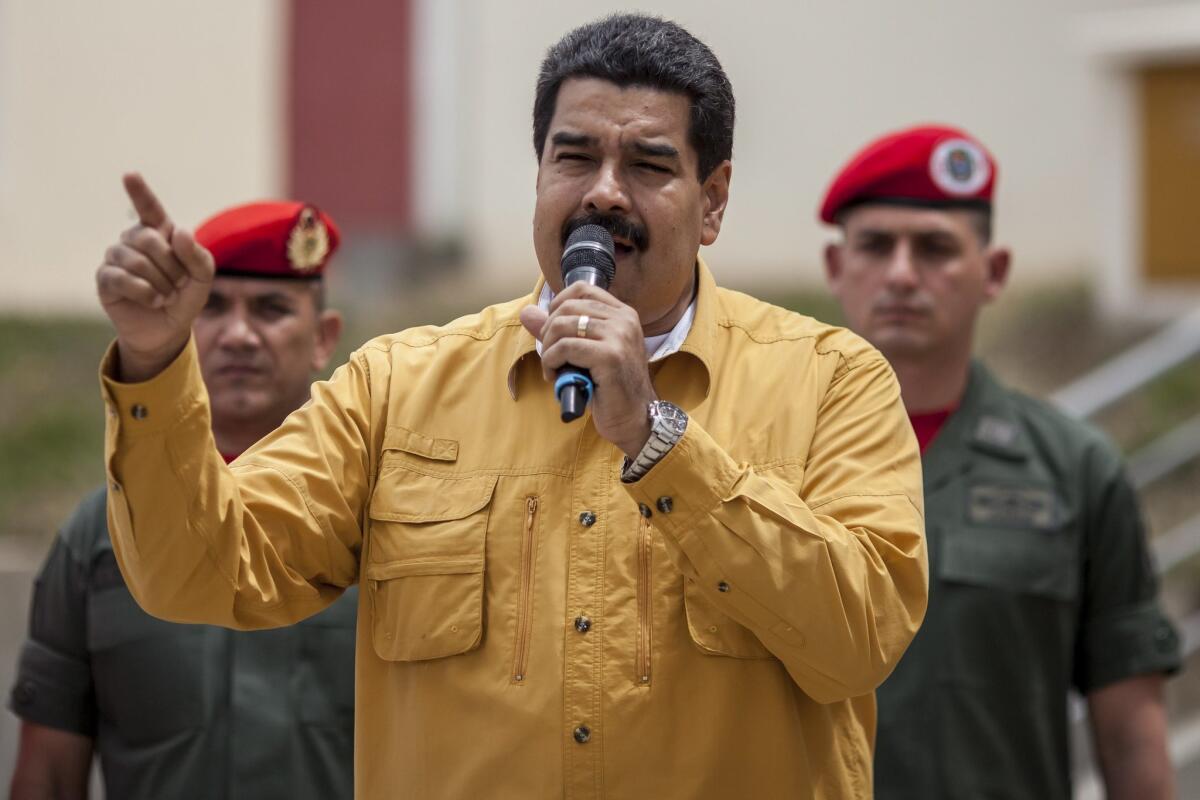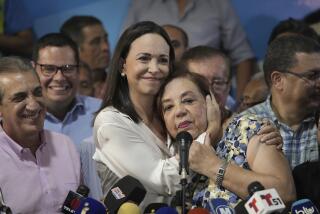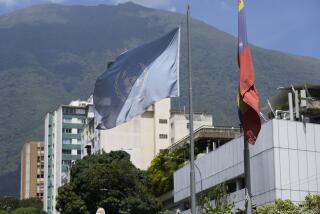Firing of editorial cartoonist in Venezuela raises censorship concerns

The firing of a longtime editorial cartoonist at El Universal newspaper for drawings critical of Venezuela’s government caused a protest Friday by former colleagues concerned about censorship of opposition viewpoints.
Cartoonist Rayma Suprani’s firing this week reflects the country’s “increasing censorship,” according to a statement issued by staff at the newspaper.
Long an opposition voice in Venezuelan politics, the editorial page of the 105-year-old newspaper was often critical of Venezuela’s socialist government, including President Nicolas Maduro and his predecessor, the late Hugo Chavez. The newspaper was acquired in July by interests aligned with the Chavista government. Since then, numerous columnists have left the publication.
“We’re sorry that [Rayma] is no longer with us and we see [her firing] as one of the major costs that the new ownership is paying for trying to adapt to an editorial line favorable to the government,” the staff’s statement said.
Suprani sent a message over social media Wednesday saying she was let go because her cartoons made the Maduro government “uncomfortable.” Her last sketch, published on Sept. 17, showed two fever charts one atop the other. One was labeled “Health” and tracked a patient’s normal heart beat. The other was labeled “Venezuela’s Health” and showed a flat line, or cardiac arrest.
Venezuela is suffering from a generally weak economy, inflation running at higher than 60%, a devaluing currency and scarcities of basic food and household items.
Under Chavez and Maduro, Venezuela’s socialist government has vigorously attacked or neutralized critics in TV, radio and print media. The critical RCTV station lost its broadcast license in 2007, and Globovision TV owner Guillermo Zuloaga was jailed in 2010 on hoarding charges he said were designed to muzzle him. He later sold his interest in the station.
After Chavez became president in 1999, dozens of once independent community radio stations across Venezuela were forced to close or sell to owners sympathetic to the government. Many independent newspapers have disappeared. El Nacional in Caracas is the only major opposition newspaper.
In another development, actress Maria Conchita Alonso, who now lives and works in the U.S., is being stripped of her Venezuelan citizenship, according to a notice published Wednesday in the government’s official gazette.
The notice did not give a reason for Alonso’s pending loss of Venezuelan citizenship in a process initiated by the interior ministry. The actress has been a harsh critic of Chavez and Maduro for their socialist policies. Born in Cuba, Alonso immigrated to Venezuela with her family in the early 1960s after the Communist revolution led by Fidel Castro.
Special correspondents Mogollon and Kraul are based in Caracas and Bogota, respectively.
More to Read
Start your day right
Sign up for Essential California for news, features and recommendations from the L.A. Times and beyond in your inbox six days a week.
You may occasionally receive promotional content from the Los Angeles Times.






